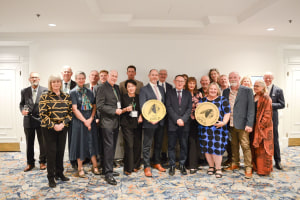The Ellen MacArthur Foundation has released a new report calling on global businesses to accelerate collective action toward a circular economy for plastics.
The 2030 Plastics Agenda for Business, launched on 4 November 2025, outlines a roadmap for market transformation, urging companies to move beyond individual initiatives and collaborate to address the systemic barriers that continue to fuel plastic pollution.
Building on a decade of progress through initiatives such as the Global Commitment, the Ellen MacArthur Foundation (EMF) has distilled learnings from more than 1200 organisations to define the next five years of action. The agenda sets out three key levers for business to drive change:
- Collective advocacy – shaping ambitious, effective policy
- Collaborative action – sharing risks, costs, and innovation to tackle barriers
- Aligned individual action – continuing to push boundaries within companies to inspire policy and market shifts
Call for broader participation
According to EMF, companies representing 20 per cent of the world’s plastic packaging market have already demonstrated that progress is possible. Through the Global Commitment, these pioneers have collectively avoided 14 million tonnes of virgin plastic – the equivalent of 1.8 trillion plastic bags – and tripled their use of recycled content.
However, the Foundation notes that 80 per cent of the market has yet to step forward, with even the most ambitious players constrained by structural barriers such as underdeveloped reuse models, lack of flexible packaging solutions, and insufficient collection and recycling infrastructure.
“Many business leaders ask me what comes next. My answer is simple: don’t wait,” said Rob Opsomer, executive lead for plastics and finance at the Ellen MacArthur Foundation. “The companies that act now can help shape effective policies and make circular solutions the new normal. By working together, they’ll cut transition costs and build resilience in a fast-changing world.”
Leading companies reaffirm commitment
Several major global brands – including Amcor, Borealis, Colgate-Palmolive, Danone, L’Oréal, Nestlé, SC Johnson, PepsiCo, TOMRA, and Unilever – have reaffirmed their commitment to EMF’s Global Commitment 2030, marking the first wave of sign-ups under the new agenda.
Antonia Wanner, chief sustainability officer at Nestlé, said the company would continue contributing to the shared vision of a circular economy for plastics. “We look forward to collective action on the 2030 Plastics Agenda for Business, working with the Foundation and value chain partners. Together we aim to overcome systemic barriers by building broader systems and a policy landscape for the circular economy.”
Pablo Costa, global head of packaging, digital and transformation at Unilever, echoed the need for industry-wide collaboration. “Ending plastic pollution and keeping plastic in circulation requires innovation, infrastructure and enabling policy, combined with focused, collective action and advocacy right across the plastics value chain as identified in this 2030 Plastics Agenda.”
The next chapter in a global movement

Since 2018, EMF and the UN Environment Programme’s Global Commitment has been the world’s largest voluntary initiative tackling plastic waste. It now sits alongside more than 700 businesses involved in local Plastics Pacts and over 300 organisations advocating for a legally binding global plastics treaty.
In his foreword to the report, Rob Opsomer reflects on a decade of learning:
“We are at a crossroads. Early optimism is colliding with the complex realities of scaling solutions in a shifting and uncertain world. A circular economy for plastics offers a root-cause solution to pollution with profound benefits for the economy, for nature, and for people. The companies who lean in now will help shape the future and stay ahead of regulation, while those who don’t risk being disrupted.”
The 2030 Plastics Agenda for Business represents a decisive moment for corporate leadership on plastics – an invitation for businesses across the value chain to align ambition, accelerate innovation, and work collectively to make circularity the norm.
For more information or to join the Global Commitment, visit ellenmacarthurfoundation.org/2030-plastics-agenda-for-business.






